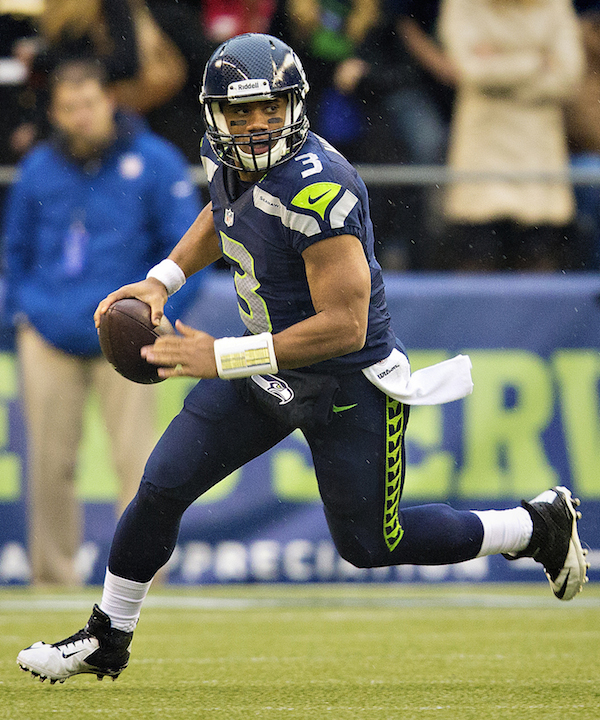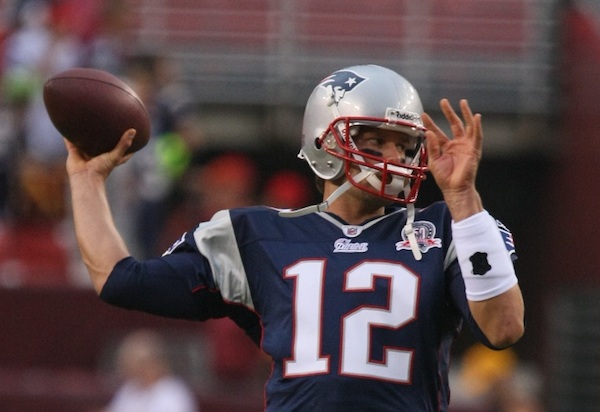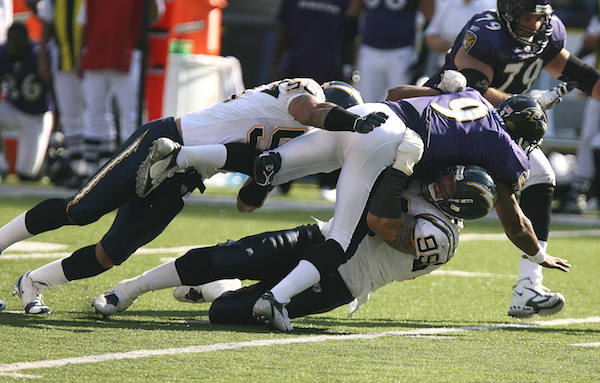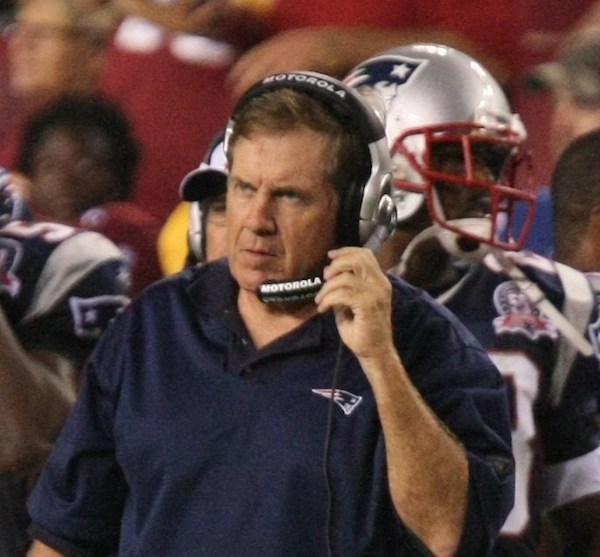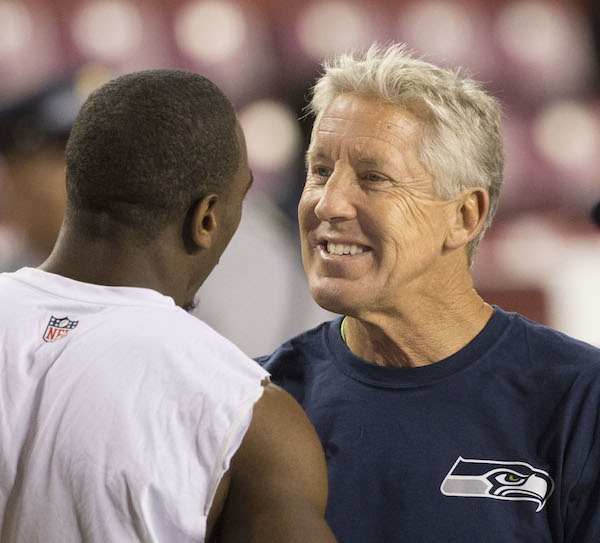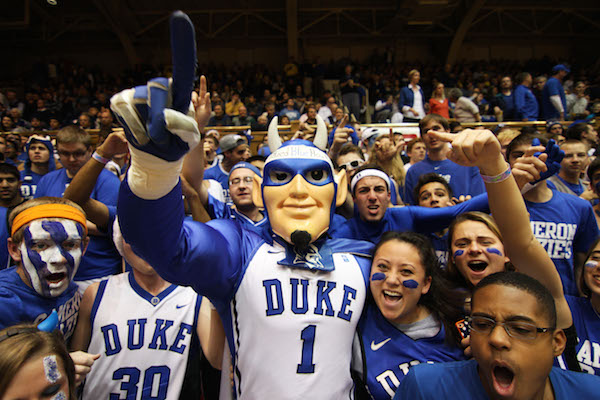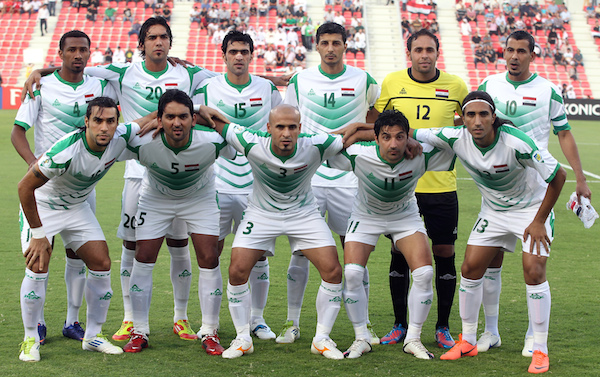Russell Wilson, the Seattle Seahawks quarterback, has as clear an image as any public figure I’ve ever read or written about. He never wavers, he never blunders, even when he plays poorly. As much as we can tell about anyone from afar, Wilson seems to be who he seems to be. It’s refreshing, heartening, and a little boring, to be honest.
What is Russell Wilson’s background?
Wilson was born in Ohio and raised in Virginia. His father was a lawyer and his mother had the interesting job of using her expertise as a nurse to consult on medicine related court cases. The Wilsons were and are an athletic family. His grandfather was a college football and basketball player before becoming president of a university. His father played football and baseball at Dartmouth and almost made it into the NFL as a wide-receiver. Wilson’s older brother played college football and baseball and his little sister is one of the top high school basketball players in the country. Harrison Wilson III, father to Harrison IV, Russell, and Anna, died in 2010 of complications from diabetes.
Like his Super Bowl counterpart, Tom Brady, Russell Wilson excelled at multiple sports in high school and college. If anything, Wilson was more distinguished as a baseball player and football player than Brady. In Collegiate high school in Virginia, Wilson won the state championship as a football player and served as class president. He went to college in nearby North Carolina State University. There, he sat out his first year, won the starting job part of the way through his second year and played so well that he became the first ever freshman (players can sit their first year and still be considered freshman) to be named as first-team All-ACC quarterback. His next two years went according to plan, with Wilson starring on the football field and the baseball diamond, as well as graduating a year early and taking graduate level courses.
In 2010, things took a turn when Wilson got into a dispute with NC State’s football coach over whether or not he would be able to continue to pursue baseball in addition to football. Wilson had been drafted by the Baltimore Orioles in 2007 and later by the Colorado Rockies in 2010 (don’t ask me how that works… well, I guess if you’re not going to ask me, who would you ask? Fine, ask me later!) and was determined to keep his options open. The dispute was not to be mended. Wilson decided to leave NC State and transfer to Wisconsin. In his first year at Wisconsin and his last eligible year in college football, he led the Wisconsin Badgers to a Big 10 title and a place in the Rose Bowl. Wisconsin lost but the season had been a success.
Again, similar to Tom Brady, Wilson was not drafted high in the NFL draft. For Brady, the knock was that he was neither experienced, nor athletic enough to succeed in the NFL. The criticism of Wilson seems even stupider in retrospect. Wilson was drafted in the third round of the 2012 NFL draft with the 75th overall pick because teams thought he was too short to succeed. That has obviously not been the case. Wilson won the starting job in his first preseason camp. In three seasons, he has won 36 games and lost only 12 games in the regular season. He has been to the playoffs every year and has so far only lost a single game. Last year, he won the Super Bowl.
What’s he all about?
Russell Wilson is a devout man. According to Wikipedia, he “became a devout Christian at age 14 when he said he saw Jesus in a dream.” His Twitter profile refers to John 3:30 which states, “He must become greater; I must become less.” He also proclaims himself to be “too blessed to be stressed.” When not tweeting bible verses, Wilson is an enthusiastic promoter of his team, his teammates, the companies he endorses, and, most charmingly, his little sister and her basketball career. He caused a slight controversy after the Seahawks game against the Packers, when Packers quarterback Aaron Rodgers objected to Wilson’s post-game attribution of the win to god by saying, “I don’t think God cares a lot about the outcome.”
Controversy is one thing that Wilson has pretty much avoided so far in his career. His image is clean and controlled. He has very few friends other than a tight group of people he knew before stardom that help him manage his life and career. The only small to-do that Wilson has been involved with was the insinuation earlier this year from some of his teammates as reported by Mike Freeman, that he may not be “black enough.” That insinuation probably deserves its own essay written by someone more authoritative in sociology than me. It’s worth reporting that shortly after that story, the Seahawks traded wide receiver Percy Harvin, rumored to be one of the players cited by Freeman, to the New York Jets.
On the field, Wilson is a menace to opposing defenses. He is an accurate passer and moves well to avoid being sacked by defenders. When deployed in zone-read plays, where he is given the option of handing the ball to his running back or running with it himself, Wilson is deadly. He led all NFL quarterbacks this year in rushing with 849 yards and six touchdowns. Those stats would put him tied for 16th as a running back, much less as a quarterback. There’s great debate about whether clutch play actually exists but if it does, Wilson has it. He seems to get better as the game goes on and plays with more poise and determination when his team is losing and needs him the most.
What will it mean if he wins? What will it mean if he loses?
There are only eleven quarterbacks who have won more than one Super Bowl. Russell Wilson joins that group if the Seahawks win this game. He’ll also join an even more elite group of quarterbacks who have won consecutive Super Bowls. Of this group, only his opponent, Tom Brady, isn’t already in the Hall of Fame. It’s tempting to say that Wilson will have more chances, even if he loses, but things change fast in the NFL and nothing is certain. What is likely though, is that Wilson has many years of productive football ahead of him. He should be able to overcome the setback a loss would pose to how he is seen as a quarterback.
Prepare for the Super Bowl with Dear Sports Fan. We will be running special features all week to help everyone from the die-hard football fan to the most casual observer enjoy the game. So far we’ve profiled Seattle Seahawks coach Pete Carroll, New England Patriots coach Bill Belichick, and New England Patriots quarterback Tom Brady. If you haven’t signed up for our newsletter or either of our Football 101 or 201 courses, do it today!

